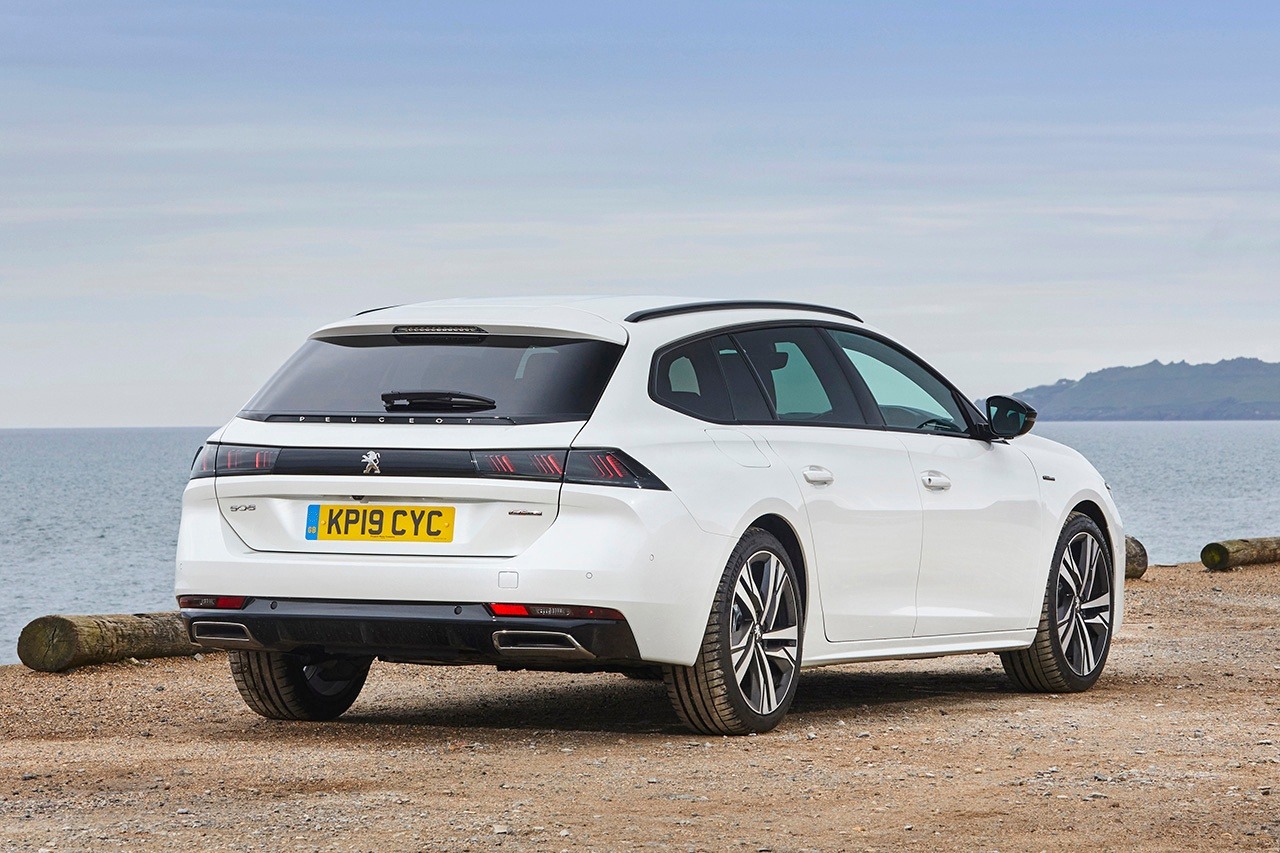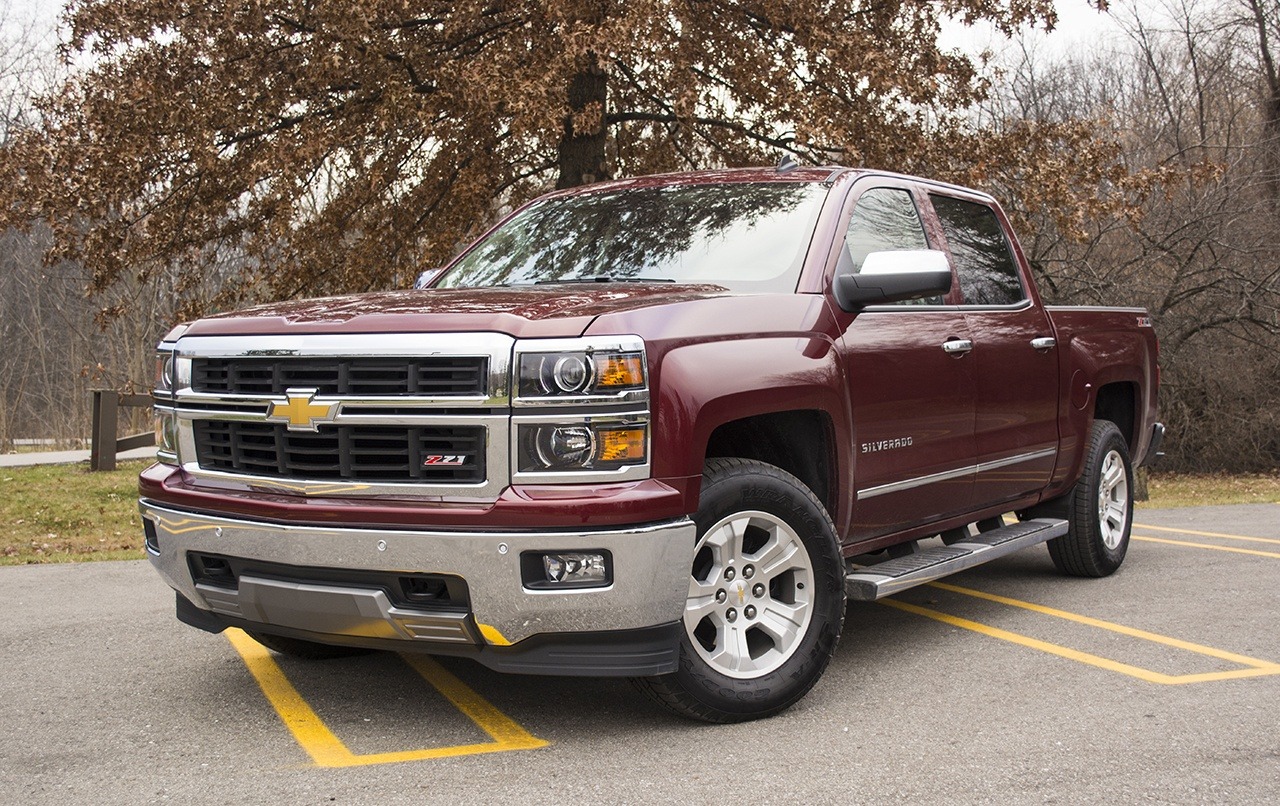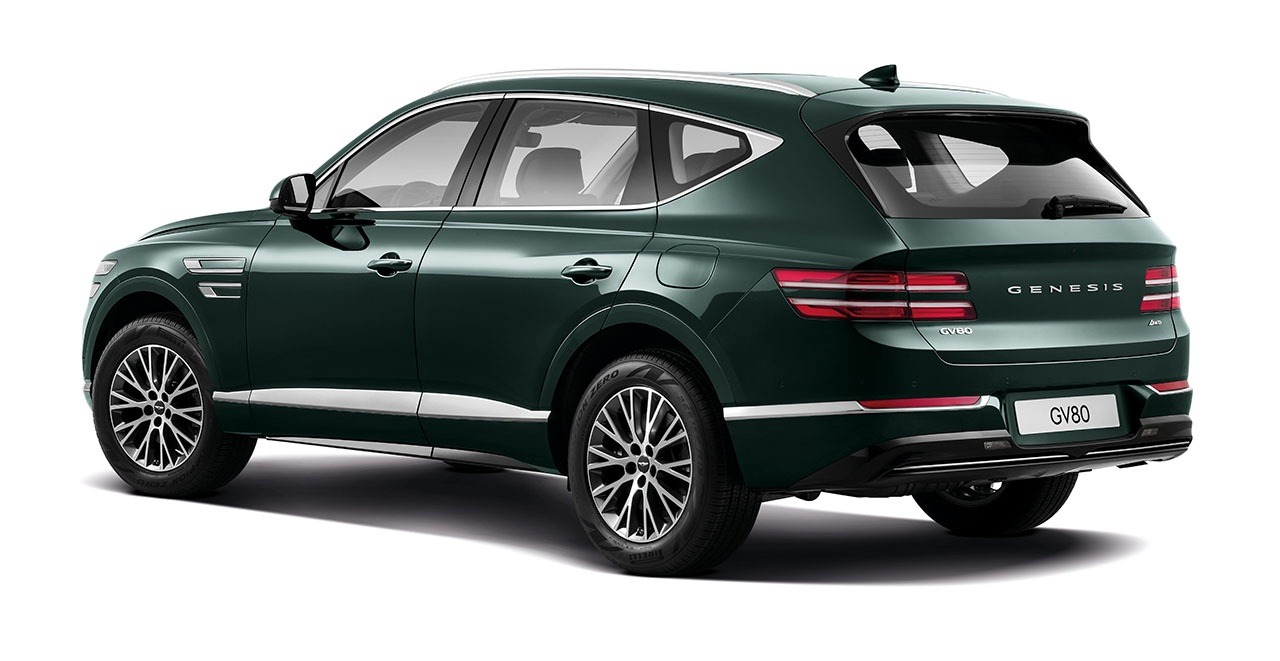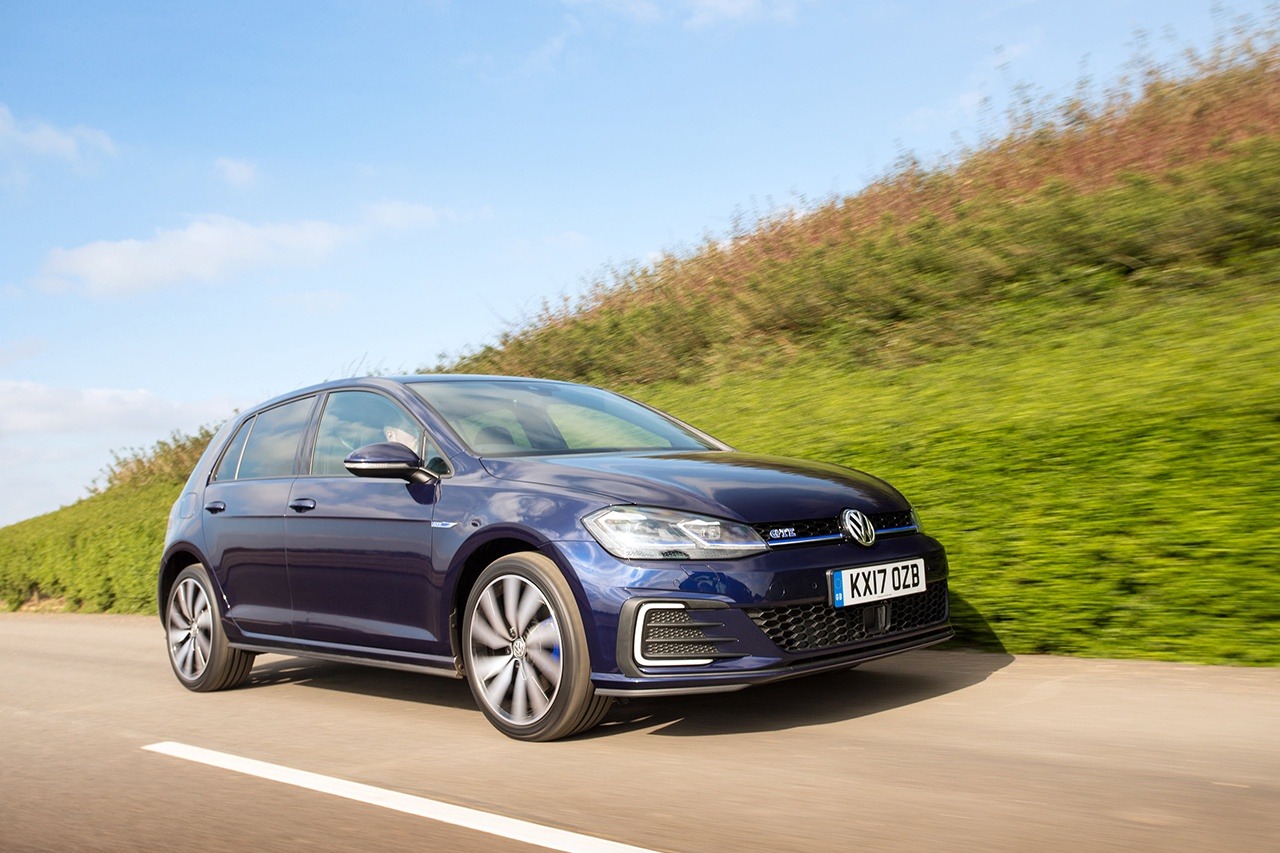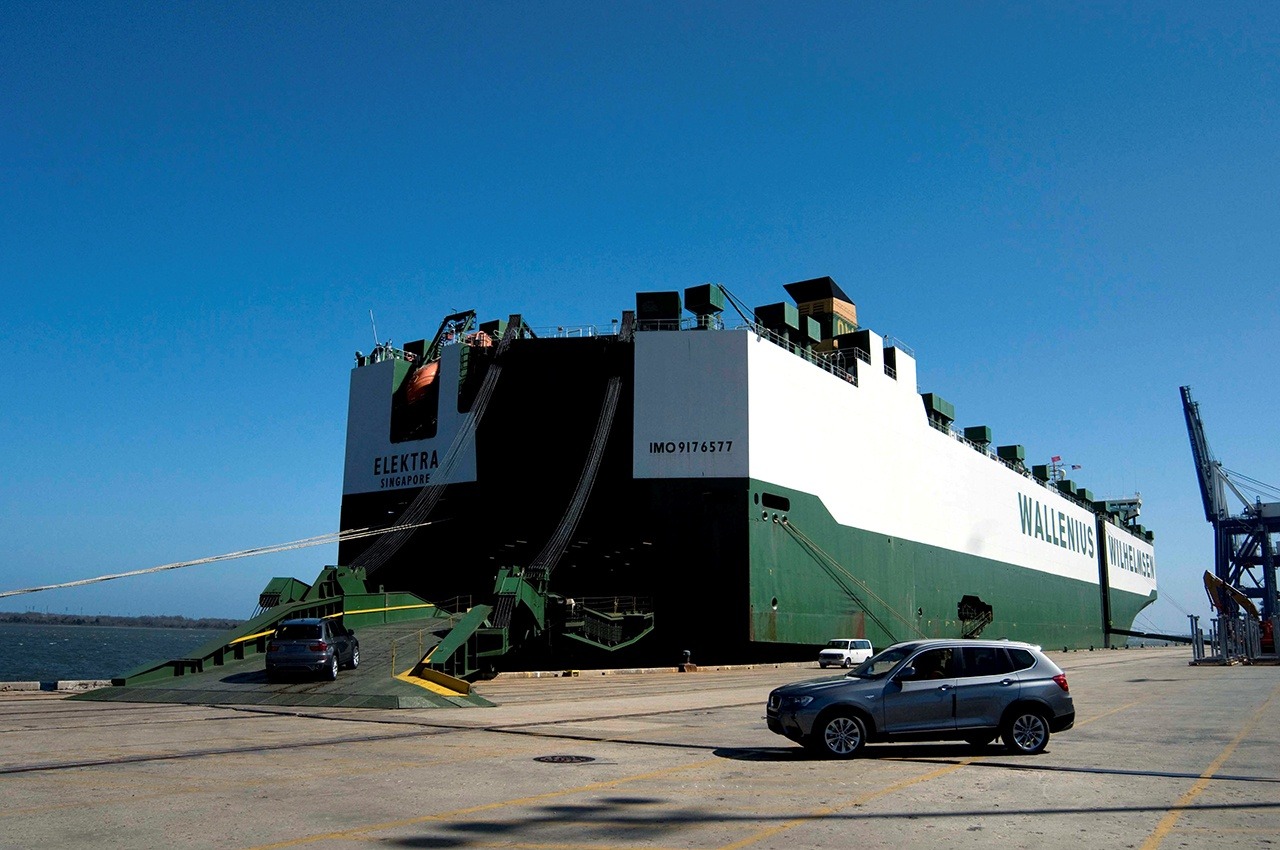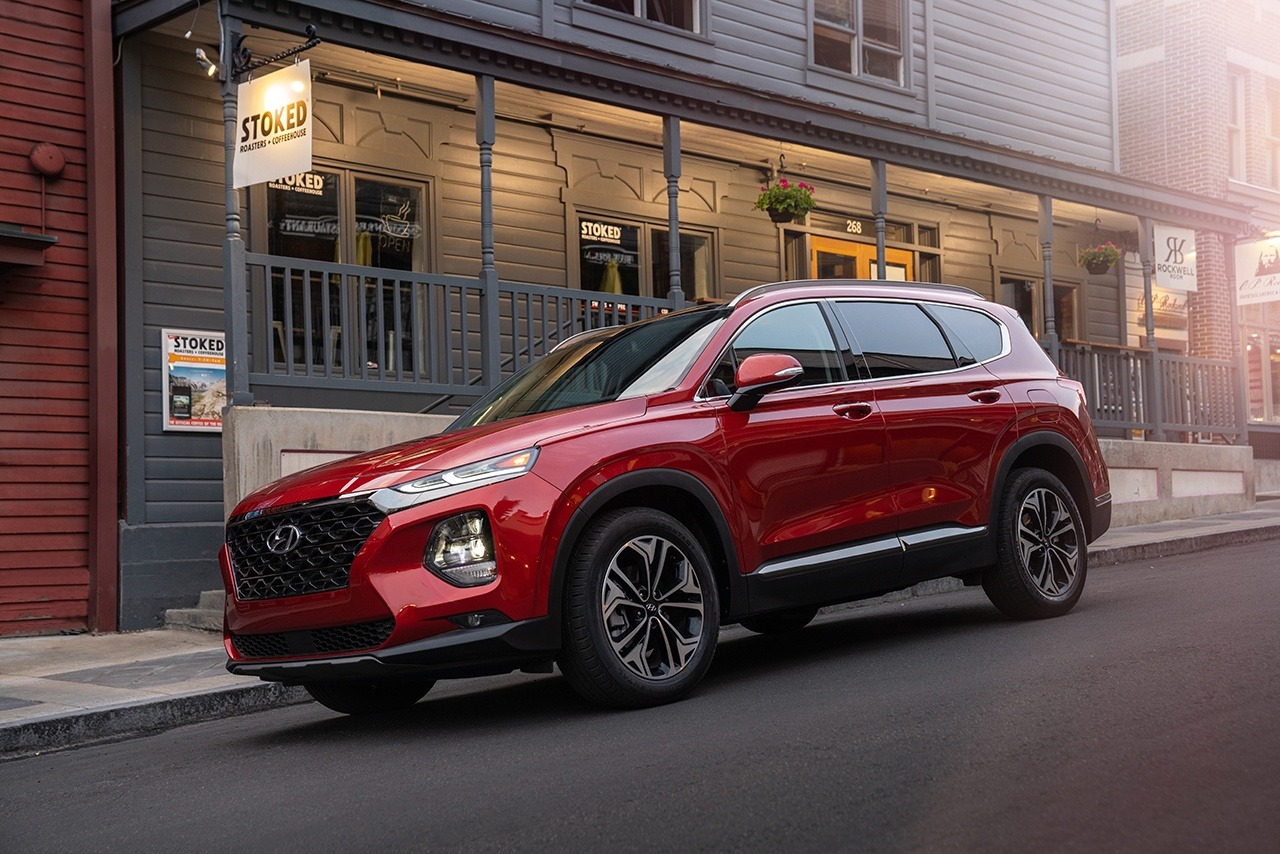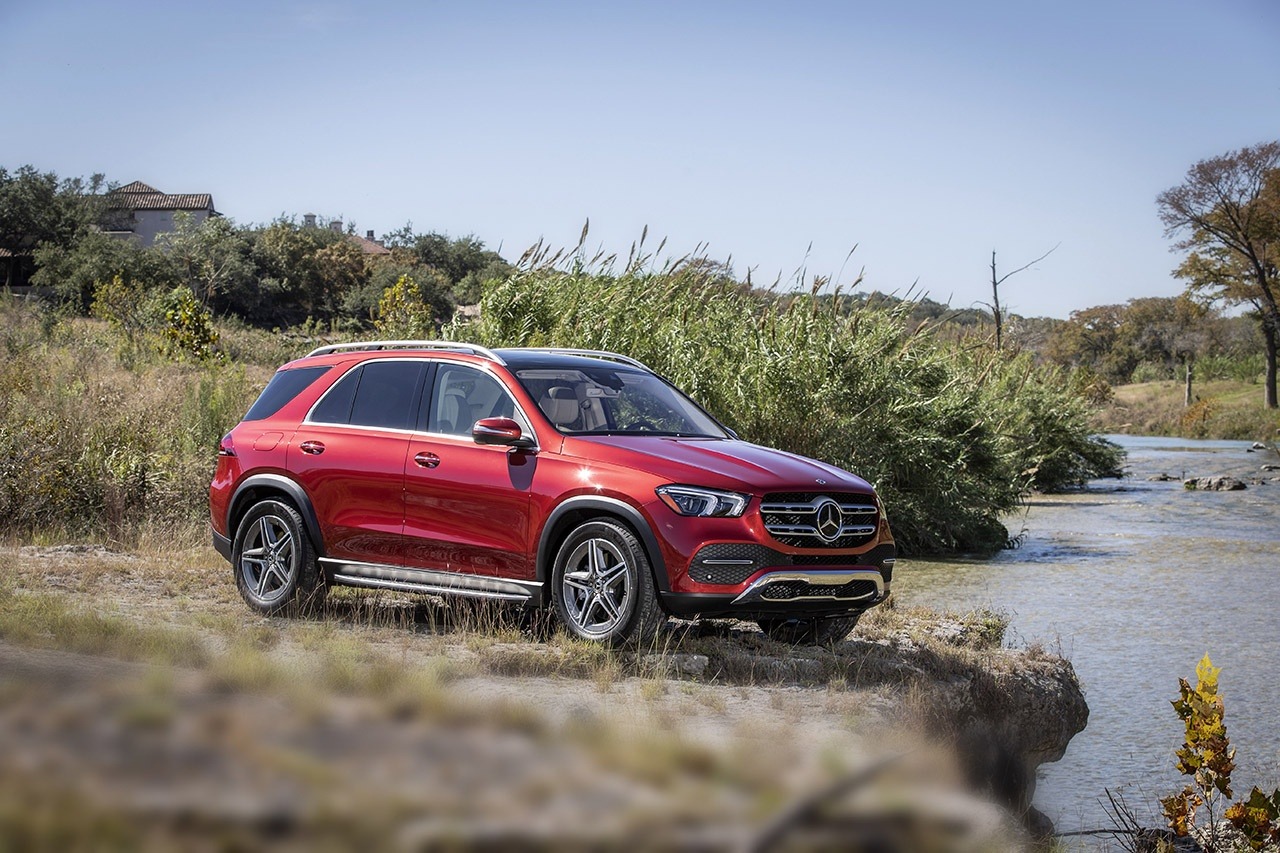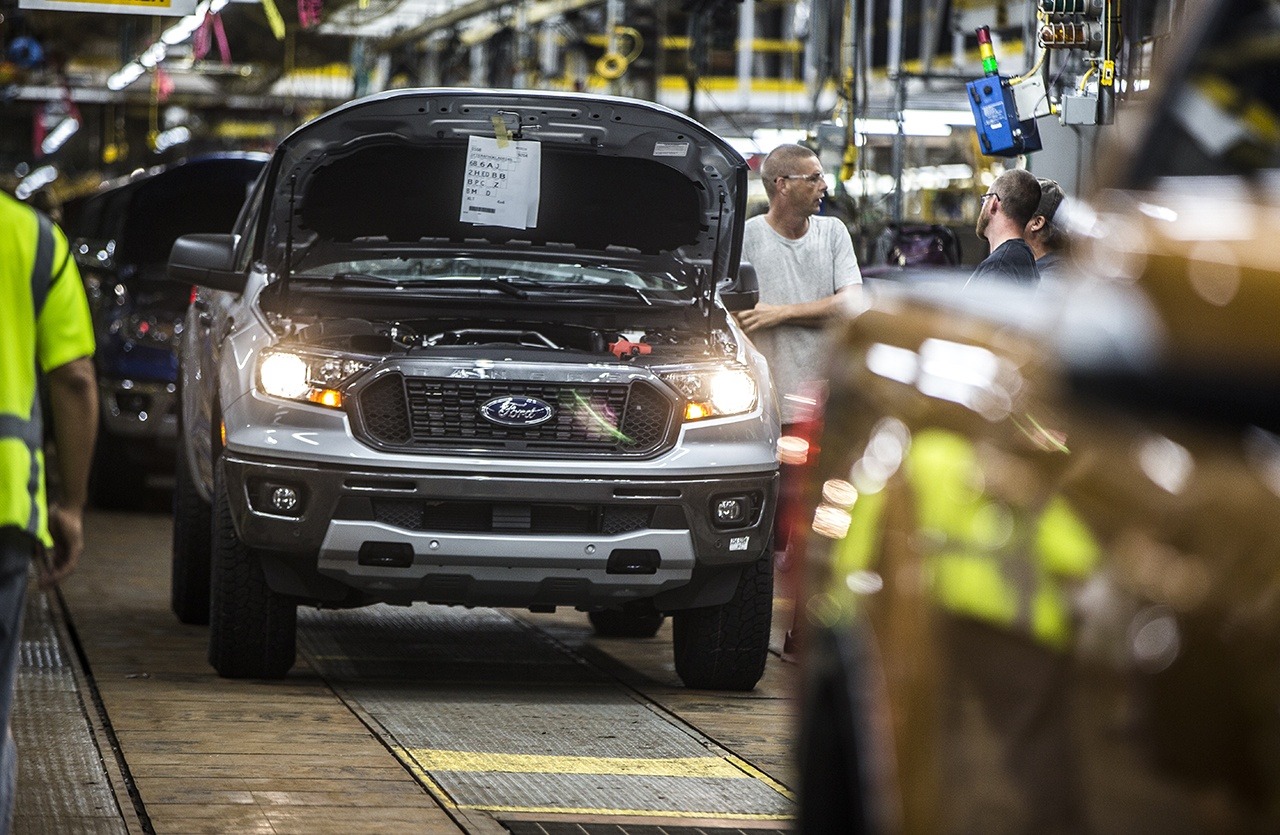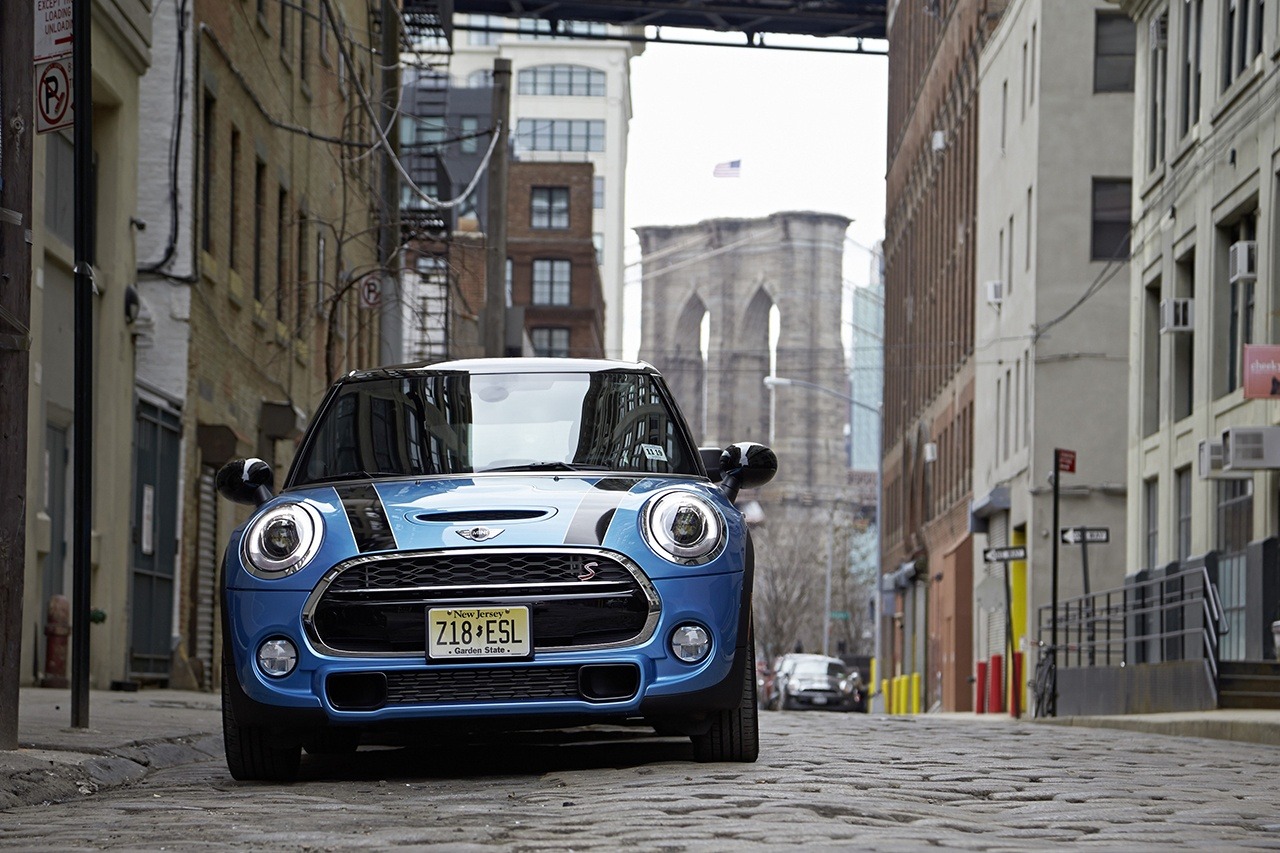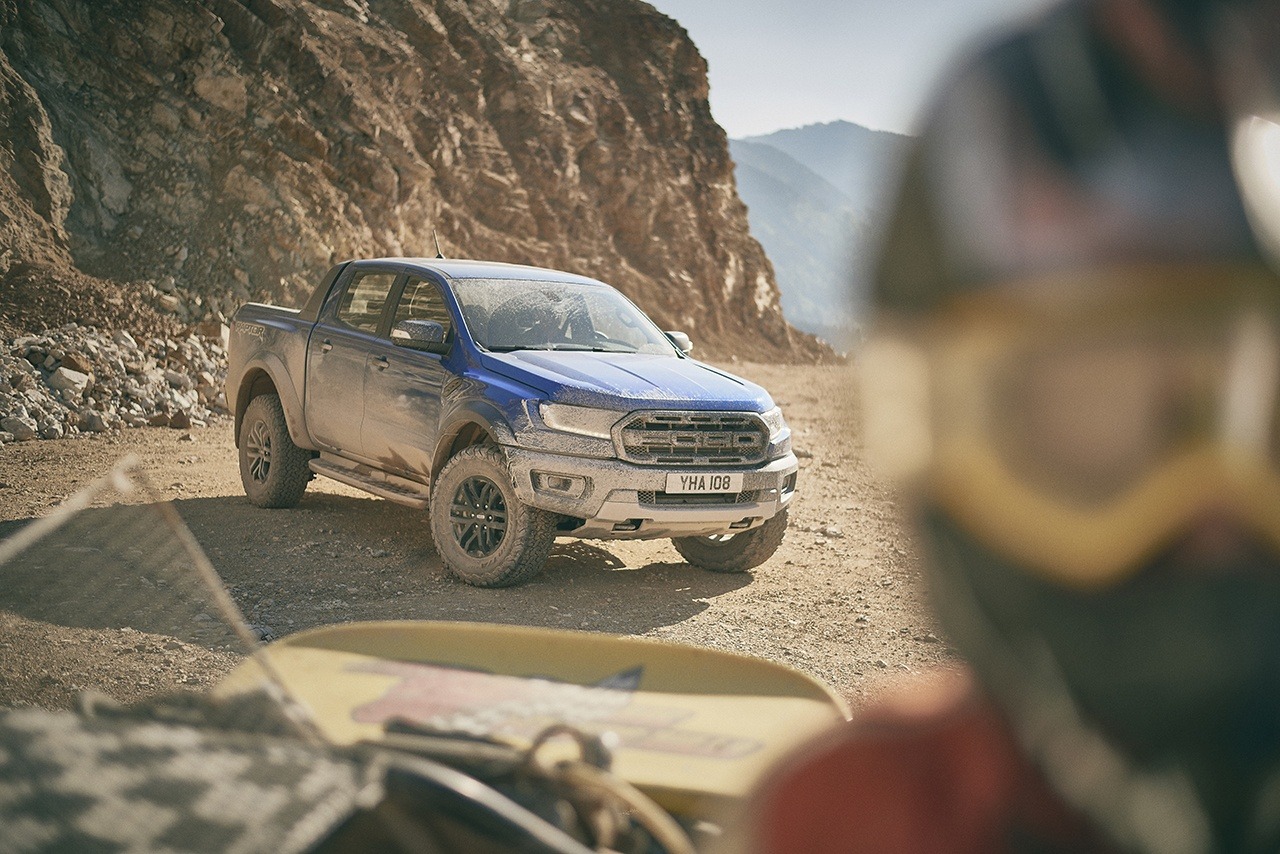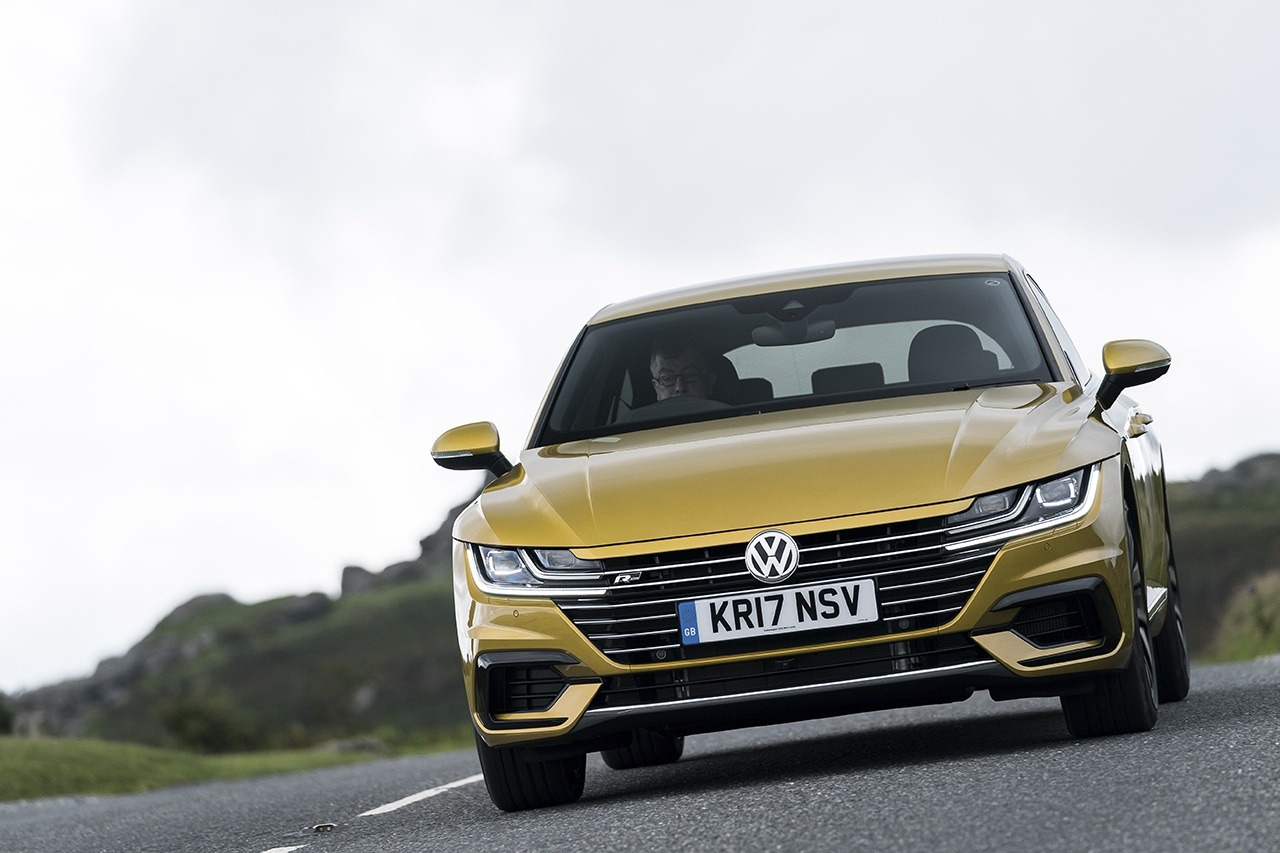Search the Community
Showing results for tags 'U.S.'.
-
Yesterday, Fiat Chrysler Automobiles and Groupe PSA officially merged to become Stellantis, the fourth-largest automaker in the world. But this merge has produced some consequences that need to be addressed. One of those being Peugeot's re-entry back in to the U.S. “We were last speaking about [Peugeot’s U.S. re-entry] a year and a half ago, before Stellantis. We can’t not take into account that in the coming days Peugeot will be part of this new world. I imagine in the coming months due to the new strategy we will have to adapt and reconsider all elements, including this one,” said Peugeot CEO Jean-Philippe Imparato to Automotive News. A key reason for this reconsideration not wanting overlap brands in the U.S. This is a polar opposite to comments made last year by Larry Dominique, CEO of PSA North America. Imparto's focus for Peugeot in the near future is concentrating on its core markets - Europe, the Middle East, Africa, and Latin America. There are also plans to get the brand back on track in China. As for the U.S., Imparto said it was "still on the table" down the road. Source: Automotive News (Subscription Required)
-
Yesterday, Fiat Chrysler Automobiles and Groupe PSA officially merged to become Stellantis, the fourth-largest automaker in the world. But this merge has produced some consequences that need to be addressed. One of those being Peugeot's re-entry back in to the U.S. “We were last speaking about [Peugeot’s U.S. re-entry] a year and a half ago, before Stellantis. We can’t not take into account that in the coming days Peugeot will be part of this new world. I imagine in the coming months due to the new strategy we will have to adapt and reconsider all elements, including this one,” said Peugeot CEO Jean-Philippe Imparato to Automotive News. A key reason for this reconsideration not wanting overlap brands in the U.S. This is a polar opposite to comments made last year by Larry Dominique, CEO of PSA North America. Imparto's focus for Peugeot in the near future is concentrating on its core markets - Europe, the Middle East, Africa, and Latin America. There are also plans to get the brand back on track in China. As for the U.S., Imparto said it was "still on the table" down the road. Source: Automotive News (Subscription Required) View full article
-
IHS Markit recently published their analysis on how long Americans are holding onto their vehicles. The average according to the firm stands at 11.9 years, the highest amount since they have been tracking this. Also, about one in four vehicles is over sixteen years old. We should note that this data came before COVID-19 started to wreak havoc on the U.S. IHS notes that new cars only made up 6.1 percent of vehicles in operation in 2019, down 0.8 percent when compared to high of 2016. This highlights falling new car sales. But the question lingering over automakers and analysts is will the pandemic cause sales to fall even further as more people hang on to their vehicles. "People are going to keep their vehicles because they don't know if they're going to be driving to work in the future, they don't know if they're going to be driving to work anytime soon even. If you're not accumulating the miles, you might keep that vehicle on the road a little longer," said Todd Campau, associate director of aftermarket solutions at IHS Markit. IHS estimates that new cars in operation could drop to 5% or less in the coming year or so. The firm also expects the age to climb upward in the coming years as owners consider whether or not to spend the hefty amount on a car, when their current vehicle is still quite good. Source: Automotive News (Subscription Required), CNBC
-
IHS Markit recently published their analysis on how long Americans are holding onto their vehicles. The average according to the firm stands at 11.9 years, the highest amount since they have been tracking this. Also, about one in four vehicles is over sixteen years old. We should note that this data came before COVID-19 started to wreak havoc on the U.S. IHS notes that new cars only made up 6.1 percent of vehicles in operation in 2019, down 0.8 percent when compared to high of 2016. This highlights falling new car sales. But the question lingering over automakers and analysts is will the pandemic cause sales to fall even further as more people hang on to their vehicles. "People are going to keep their vehicles because they don't know if they're going to be driving to work in the future, they don't know if they're going to be driving to work anytime soon even. If you're not accumulating the miles, you might keep that vehicle on the road a little longer," said Todd Campau, associate director of aftermarket solutions at IHS Markit. IHS estimates that new cars in operation could drop to 5% or less in the coming year or so. The firm also expects the age to climb upward in the coming years as owners consider whether or not to spend the hefty amount on a car, when their current vehicle is still quite good. Source: Automotive News (Subscription Required), CNBC View full article
-
When Kia revealed the new Soul to the U.S. in 2018, they announced that the EV would be arriving sometime a year later. 2019 came and the automaker announced that the Soul EV had been pushed back to 2020. A few months later, the launch date was pushed to 2021. Now, an internal source at Kia's U.S. office has revealed to Roadshow that the Soul EV isn't coming at all. According to the source, a number of factors played into this decision. Some of the factors such as limited supply of batteries and motors, along with increased demand for the model Europe were used to explain the last delay. Also, the Soul EV has independent rear suspension. The standard Soul doesn't, which would make the EV more expensive to bring to the U.S. and add complexity. Adding fuel to the fire, Kia has removed any mention of the Soul EV on their U.S. consumer and media sites. There is also no mention of the Soul EV on the EPA site. Previously, the vehicle was mentioned with a range of 243 miles. When reached by Roadshow, a Kia spokesperson said they haven't heard anything about the Soul EV being canned for the U.S., but did confirm they have "no pending plans to introduce before 2021 at the earliest." We'll keep you posted on this story. Source: Roadshow
-
When Kia revealed the new Soul to the U.S. in 2018, they announced that the EV would be arriving sometime a year later. 2019 came and the automaker announced that the Soul EV had been pushed back to 2020. A few months later, the launch date was pushed to 2021. Now, an internal source at Kia's U.S. office has revealed to Roadshow that the Soul EV isn't coming at all. According to the source, a number of factors played into this decision. Some of the factors such as limited supply of batteries and motors, along with increased demand for the model Europe were used to explain the last delay. Also, the Soul EV has independent rear suspension. The standard Soul doesn't, which would make the EV more expensive to bring to the U.S. and add complexity. Adding fuel to the fire, Kia has removed any mention of the Soul EV on their U.S. consumer and media sites. There is also no mention of the Soul EV on the EPA site. Previously, the vehicle was mentioned with a range of 243 miles. When reached by Roadshow, a Kia spokesperson said they haven't heard anything about the Soul EV being canned for the U.S., but did confirm they have "no pending plans to introduce before 2021 at the earliest." We'll keep you posted on this story. Source: Roadshow View full article
-
Genesis was hoping to have a one-two punch for the U.S. with the launch of the new GV80 crossover and redesigned G80 this summer. But the COVID-19 pandemic has screwed up these plans. Automotive News reports that Genesis has pushed back the launch of both models to the fall. A Genesis spokesman told the outlet that Genesis couldn't get the two vehicles into EPA testing to have them certified for vehicle emissions. The labs that perform the tests were shutdown due to COVID-19. Source: Automotive News (Subscription Required) View full article
-
Genesis was hoping to have a one-two punch for the U.S. with the launch of the new GV80 crossover and redesigned G80 this summer. But the COVID-19 pandemic has screwed up these plans. Automotive News reports that Genesis has pushed back the launch of both models to the fall. A Genesis spokesman told the outlet that Genesis couldn't get the two vehicles into EPA testing to have them certified for vehicle emissions. The labs that perform the tests were shutdown due to COVID-19. Source: Automotive News (Subscription Required)
-
In Europe, Volkswagen offers a couple of plug-in hybrid models such as the Golf GTE. But don't expect any those plug-in hybrids to come to the U.S. "It's a bridging technology," between internal-combustion and full-electric cars, said Matthew Renna, Volkswagen North America Region's vice president of e-mobility yesterday at the Chicago Auto Show. "It's very cost-prohibitive to have two different powertrains on one platform." Volkswagen has made no secret about their electric car ambitions, with plans to launch a full lineup within the next few years. While Europe will get a small hatchback based on I.D. Concept, the U.S. will get a production version of the Crozz concept. Volkswagen is also planning on selling their upcoming EVs in all 50 states, not only in those that require automakers to sell certain number of EVs. "The plan is to sell nationwide. The goal is a nationwide roll-out ASAP," said Renna. Source: Roadshow
- 10 comments
-
- not coming
- plug-in hybrid
-
(and 2 more)
Tagged with:
-
In Europe, Volkswagen offers a couple of plug-in hybrid models such as the Golf GTE. But don't expect any those plug-in hybrids to come to the U.S. "It's a bridging technology," between internal-combustion and full-electric cars, said Matthew Renna, Volkswagen North America Region's vice president of e-mobility yesterday at the Chicago Auto Show. "It's very cost-prohibitive to have two different powertrains on one platform." Volkswagen has made no secret about their electric car ambitions, with plans to launch a full lineup within the next few years. While Europe will get a small hatchback based on I.D. Concept, the U.S. will get a production version of the Crozz concept. Volkswagen is also planning on selling their upcoming EVs in all 50 states, not only in those that require automakers to sell certain number of EVs. "The plan is to sell nationwide. The goal is a nationwide roll-out ASAP," said Renna. Source: Roadshow View full article
- 10 replies
-
- not coming
- plug-in hybrid
-
(and 2 more)
Tagged with:
-
China has announced today that it would be reducing tariffs on U.S.-built cars and car parts from 40 to 15 percent beginning on January 1st. This reduction will last for three months as the U.S. and China begin hashing out a new trade deal. We first reported the reduction of the tariffs earlier this week. China's Ministry of Finance posted on their website said it hopes the talks between the two can go quickly and remove "all additional tariffs on each other’s goods" that were brought forth before the current trade-war. “China just announced that their economy is growing much slower than anticipated because of our Trade War with them. They have just suspended U.S. Tariff Hikes. U.S. is doing very well. China wants to make a big and very comprehensive deal. It could happen, and rather soon!” President Donald Trump wrote on Twitter in response to the announcement. China raised the tariffs on U.S.-built vehicles and parts back in July in response to the U.S. raised tariffs on Chinese-built vehicles and parts to 27.5 percent. The move caused a number of headaches for automakers which had to increase prices on models sold in China or change up various plans. Various automakers and groups welcomed the news. At the moment, the U.S. hasn't announced any plans to reduce the 27.5 percent tariff on Chinese-built vehicles and parts. Source: Associated Press, Reuters
-
China has announced today that it would be reducing tariffs on U.S.-built cars and car parts from 40 to 15 percent beginning on January 1st. This reduction will last for three months as the U.S. and China begin hashing out a new trade deal. We first reported the reduction of the tariffs earlier this week. China's Ministry of Finance posted on their website said it hopes the talks between the two can go quickly and remove "all additional tariffs on each other’s goods" that were brought forth before the current trade-war. “China just announced that their economy is growing much slower than anticipated because of our Trade War with them. They have just suspended U.S. Tariff Hikes. U.S. is doing very well. China wants to make a big and very comprehensive deal. It could happen, and rather soon!” President Donald Trump wrote on Twitter in response to the announcement. China raised the tariffs on U.S.-built vehicles and parts back in July in response to the U.S. raised tariffs on Chinese-built vehicles and parts to 27.5 percent. The move caused a number of headaches for automakers which had to increase prices on models sold in China or change up various plans. Various automakers and groups welcomed the news. At the moment, the U.S. hasn't announced any plans to reduce the 27.5 percent tariff on Chinese-built vehicles and parts. Source: Associated Press, Reuters View full article
-
Hyundai was planning on offering three different powertrains for the Santa Fe; the 2.4L four-cylinder as the base, an optional turbocharged 2.0L turbo-four, and a new 2.2L turbodiesel. The diesel would also be the only Santa Fe model to offer a third-row. But Green Car Reports has learned the diesel option has been canned. Brandon Ramirez, a spokesman for Hyundai confirmed the cancellation of the diesel during a first drive event of the Palisade in South Korea. The reason was due studies showing that consumers were not as willing to purchase a diesel as before. Likely helping this is the downward trend in gas prices and the increasing push into electrification. The departure of the diesel also means no option of a third-row for the Santa Fe according to Ramirez. This follows the announcement made by Kia back in October that the Sorento diesel option was canned. Source: Green Car Reports View full article
-
Hyundai was planning on offering three different powertrains for the Santa Fe; the 2.4L four-cylinder as the base, an optional turbocharged 2.0L turbo-four, and a new 2.2L turbodiesel. The diesel would also be the only Santa Fe model to offer a third-row. But Green Car Reports has learned the diesel option has been canned. Brandon Ramirez, a spokesman for Hyundai confirmed the cancellation of the diesel during a first drive event of the Palisade in South Korea. The reason was due studies showing that consumers were not as willing to purchase a diesel as before. Likely helping this is the downward trend in gas prices and the increasing push into electrification. The departure of the diesel also means no option of a third-row for the Santa Fe according to Ramirez. This follows the announcement made by Kia back in October that the Sorento diesel option was canned. Source: Green Car Reports
-

Rumorpile: China May Reduce Tariffs On U.S.-Made Cars
William Maley posted an article in Automotive Industry
The Chinese government is considering a proposal to reduce tariffs on U.S.-Built vehicles from the current 40 percent back down to the 15 percent before the trade war broke out between it and the U.S. Sources tell Bloomberg a proposal has been submitted to the cabinet to be reviewed in the coming days. This proposal stems from a trade summit in Buenos Aires where U.S. President Donald Trump and Chinese President Xi Jinping agreed to a 90-day truce on the trade war earlier this month. After the meeting, Trump tweeted out that "China agreed to “reduce and remove” tariffs on imported American-made cars, something China did not confirm at the time." Shares of various automakers including Diamler, Ford, and Tesla rose on the news. The trade war between the U.S. and China has taken a toll on automakers. Both BMW and Dimaler have warned of lower profits as tariffs have forced them to raise prices in China. Others such as Volvo and Ford have made changes to production and vehicle plans. China's Finance Ministry didn't respond to Bloomberg's request for a comment. Source: Bloomberg- 9 comments
-
- automobiles
- cars
- (and 6 more)
-
The Chinese government is considering a proposal to reduce tariffs on U.S.-Built vehicles from the current 40 percent back down to the 15 percent before the trade war broke out between it and the U.S. Sources tell Bloomberg a proposal has been submitted to the cabinet to be reviewed in the coming days. This proposal stems from a trade summit in Buenos Aires where U.S. President Donald Trump and Chinese President Xi Jinping agreed to a 90-day truce on the trade war earlier this month. After the meeting, Trump tweeted out that "China agreed to “reduce and remove” tariffs on imported American-made cars, something China did not confirm at the time." Shares of various automakers including Diamler, Ford, and Tesla rose on the news. The trade war between the U.S. and China has taken a toll on automakers. Both BMW and Dimaler have warned of lower profits as tariffs have forced them to raise prices in China. Others such as Volvo and Ford have made changes to production and vehicle plans. China's Finance Ministry didn't respond to Bloomberg's request for a comment. Source: Bloomberg View full article
- 9 replies
-
- automobiles
- cars
- (and 6 more)
-
Back in June, Ford and Volkswagen signed a Memorandum of Understanding for a new alliance that would focus on commercial vehicles. Since then, the two companies have been in discussions about it and there have been various rumors flying about. Yesterday, Volkswagen CEO Herbert Diess added some more fuel to the fire. Speaking to reporters outside of the White House, Diess revealed that the German automaker is interested in using Ford's plants in the U.S. to build vehicles. "We might use Ford capacity here in the U.S. to build cars for us," said Diess. “We need additional capacity here in the United States, we need an additional car plant for VW and Audi combined.” The company is in "quite advanced negotiations in Tennessee" about a new plant in the state - Volkswagen operates one in Chattanooga for the Passat and Atlas. But Diess did say "there might be other options as well," most likely talking about using some of Ford's plants in the U.S. For now, this is an idea being floating out there. The two are continuing their talks about what this alliance will look like. Diess said more details would come out in January. Source: Automotive News (Subscription Required) View full article
- 17 replies
-
Back in June, Ford and Volkswagen signed a Memorandum of Understanding for a new alliance that would focus on commercial vehicles. Since then, the two companies have been in discussions about it and there have been various rumors flying about. Yesterday, Volkswagen CEO Herbert Diess added some more fuel to the fire. Speaking to reporters outside of the White House, Diess revealed that the German automaker is interested in using Ford's plants in the U.S. to build vehicles. "We might use Ford capacity here in the U.S. to build cars for us," said Diess. “We need additional capacity here in the United States, we need an additional car plant for VW and Audi combined.” The company is in "quite advanced negotiations in Tennessee" about a new plant in the state - Volkswagen operates one in Chattanooga for the Passat and Atlas. But Diess did say "there might be other options as well," most likely talking about using some of Ford's plants in the U.S. For now, this is an idea being floating out there. The two are continuing their talks about what this alliance will look like. Diess said more details would come out in January. Source: Automotive News (Subscription Required)
- 17 comments
-
Mini has been struggling in the U.S. for the past few as more consumers shun small cars. The brand which expected annual sales to total 100,000 vehicles by 2017, peaked at about 66,500 models in 2013 according to Automotive News. Sales through the first ten months of the years have totaled 37,359. This isn't good news for the 127 standalone Mini dealers in the U.S. as it makes it tough for owners to justify the investment. In 2016, 45 percent of Mini dealers reported being unprofitable. A year later, that number rose to 54 percent. "As a dealer and a manufacturer you have a vision of where the brand is going, and you have to prepare for it. In this case, the vision now isn't what it was when some of these stores were built," explained Jason Willis, a member of the Mini National Dealer Council and general manager of fixed operations at Willis Auto Campus in Des Moines, Iowa. Mini's parent company, BMW is considering various options to help improve profitability. One of the options on the table is allowing dealers to integrate Mini into their BMW stores. To make sure the brands stand apart, Mini is looking into having a separate showroom with dedicated employees for sales and service. "We've given a lot of flexibility for the dealers to present ideas. This is to help make sure that, until our next wave of product, and the market becomes more favorable, our dealers each remain a strong and going concern," said Thomas Felbermair, vice president of Mini Region Americas. But there comes an issue with this idea. Mini has 31 dealers that don't have a BMW dealership that they can integrate into. A spokesman for Mini said they "are looking at additional forms of support for stores that remain fully exclusive," but didn't expand into how they plan on doing that. Source: Automotive News (Subscription Required) View full article
-

Mini May Allow Their Stand Alone Dealers To Move In with BMW
William Maley posted an article in MINI
Mini has been struggling in the U.S. for the past few as more consumers shun small cars. The brand which expected annual sales to total 100,000 vehicles by 2017, peaked at about 66,500 models in 2013 according to Automotive News. Sales through the first ten months of the years have totaled 37,359. This isn't good news for the 127 standalone Mini dealers in the U.S. as it makes it tough for owners to justify the investment. In 2016, 45 percent of Mini dealers reported being unprofitable. A year later, that number rose to 54 percent. "As a dealer and a manufacturer you have a vision of where the brand is going, and you have to prepare for it. In this case, the vision now isn't what it was when some of these stores were built," explained Jason Willis, a member of the Mini National Dealer Council and general manager of fixed operations at Willis Auto Campus in Des Moines, Iowa. Mini's parent company, BMW is considering various options to help improve profitability. One of the options on the table is allowing dealers to integrate Mini into their BMW stores. To make sure the brands stand apart, Mini is looking into having a separate showroom with dedicated employees for sales and service. "We've given a lot of flexibility for the dealers to present ideas. This is to help make sure that, until our next wave of product, and the market becomes more favorable, our dealers each remain a strong and going concern," said Thomas Felbermair, vice president of Mini Region Americas. But there comes an issue with this idea. Mini has 31 dealers that don't have a BMW dealership that they can integrate into. A spokesman for Mini said they "are looking at additional forms of support for stores that remain fully exclusive," but didn't expand into how they plan on doing that. Source: Automotive News (Subscription Required) -
Kia's car-heavy lineup has been hurting them in terms of sales as consumers want more truck and utilities. Through September, Kia sales in the U.S. dropped 1.3 percent to 452,042 vehicles. But Kia CEO Han-Woo Park tells Automotive News that he expects "our performance in the U.S. market to rebound soon." This will be due in part to two new crossovers arriving next year; the Telluride next Spring, followed by a new subcompact crossover in the second half. The subcompact crossover will be based on the SP Concept that debuted at India's Auto Expo in March. Production of the U.S. version will take place in South Korea. Park said Kia would consider other crossover models and possibly a small truck, though there are no plans for the latter. "It's not an easy market, the pickup market in the U.S.," he said. Source: Automotive News (Subscription Required) View full article
-
Kia's car-heavy lineup has been hurting them in terms of sales as consumers want more truck and utilities. Through September, Kia sales in the U.S. dropped 1.3 percent to 452,042 vehicles. But Kia CEO Han-Woo Park tells Automotive News that he expects "our performance in the U.S. market to rebound soon." This will be due in part to two new crossovers arriving next year; the Telluride next Spring, followed by a new subcompact crossover in the second half. The subcompact crossover will be based on the SP Concept that debuted at India's Auto Expo in March. Production of the U.S. version will take place in South Korea. Park said Kia would consider other crossover models and possibly a small truck, though there are no plans for the latter. "It's not an easy market, the pickup market in the U.S.," he said. Source: Automotive News (Subscription Required)
-
Many people were hoping that Ford would bring the new Raptor Ranger to the U.S. It would offer the off-road performance and capability of the larger F-150 Raptor, but in a smaller and (hopefully) more affordable package. But that isn't going to be happening. Hermann Salenbauch, the vehicle line director for Ford Performance told journalists yesterday that the company has no plans to bring the Ranger Raptor to the U.S. A key reason mentioned by Salenbauch is due to the high costs to make the Ranger Raptor legal to sell in the U.S. as the model is based on the global Ranger. We have to assume a key part would come from trying to either make the twin-turbo 2.0L diesel legal or finding a possible replacement. But Autoblog notes there is another reason not mentioned by Salenbauch, pricing. Considering the base price of the F-150 Raptor is $52,855, we would guess the Ranger Raptor would be a few thousand dollars less taking into account the various changes that would be needed. For a number of buyers, spending a few extra thousand dollars to get a bigger and badder truck isn't that big of a problem. Plus, Ford is making a nice amount of profit on each Raptor sold - especially considering that Raptors sit on dealer lots for an average of 20 days. Why introduce a competitor that would make less money? That isn't to say Ford isn't taking the Raptor Ranger off the table for the U.S. fully. Autoblog writes that "Salenbauch didn't say the Ranger Raptor would never come here, and he and other Ford executives said they're always listening to feedback and open to new models." Source: Autoblog
-
Many people were hoping that Ford would bring the new Raptor Ranger to the U.S. It would offer the off-road performance and capability of the larger F-150 Raptor, but in a smaller and (hopefully) more affordable package. But that isn't going to be happening. Hermann Salenbauch, the vehicle line director for Ford Performance told journalists yesterday that the company has no plans to bring the Ranger Raptor to the U.S. A key reason mentioned by Salenbauch is due to the high costs to make the Ranger Raptor legal to sell in the U.S. as the model is based on the global Ranger. We have to assume a key part would come from trying to either make the twin-turbo 2.0L diesel legal or finding a possible replacement. But Autoblog notes there is another reason not mentioned by Salenbauch, pricing. Considering the base price of the F-150 Raptor is $52,855, we would guess the Ranger Raptor would be a few thousand dollars less taking into account the various changes that would be needed. For a number of buyers, spending a few extra thousand dollars to get a bigger and badder truck isn't that big of a problem. Plus, Ford is making a nice amount of profit on each Raptor sold - especially considering that Raptors sit on dealer lots for an average of 20 days. Why introduce a competitor that would make less money? That isn't to say Ford isn't taking the Raptor Ranger off the table for the U.S. fully. Autoblog writes that "Salenbauch didn't say the Ranger Raptor would never come here, and he and other Ford executives said they're always listening to feedback and open to new models." Source: Autoblog View full article
-
Volkswagen was originally planning to roll out the Arteon in the U.S. towards the end of this year. But complications stemming from the European Union's Worldwide Harmonized Light-Duty Vehicles Test Procedure (WLTP) has caused the German automaker to push back the launch to early 2019. Automotive News reports that the first hint of the delay came when Volkswagen cancelled a media drive event in California that was scheduled for next month. A spokesman told the outlet the delay comes down to delays in the certification process caused by a backlog in meeting [new] WLTP worldwide emissions testing." Beginning this month, all new vehicles sold in the European Union must meet the new WLTP emissions parameters. But long delays in testing have meant that automakers only started receiving certification recently. This in turn has meant automakers are under immense pressure to keep an adequate supply of WLTP-compliant vehicles to dealers. The Arteon is one of those models and Volkswagen has made the decision to prioritize production for Europe for the time being. Source: Automotive News (Subscription Required)


